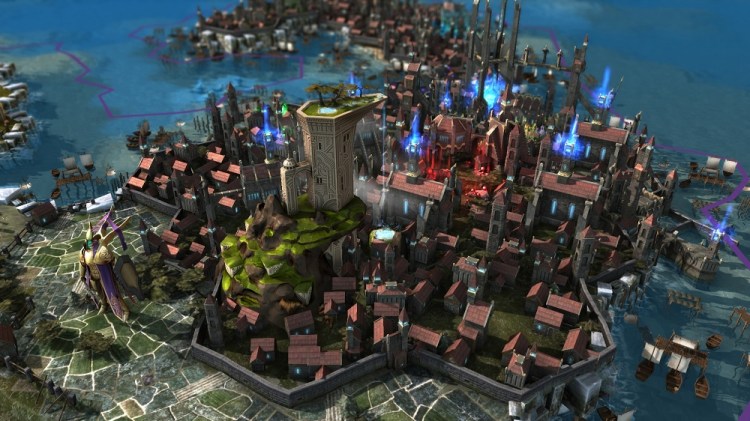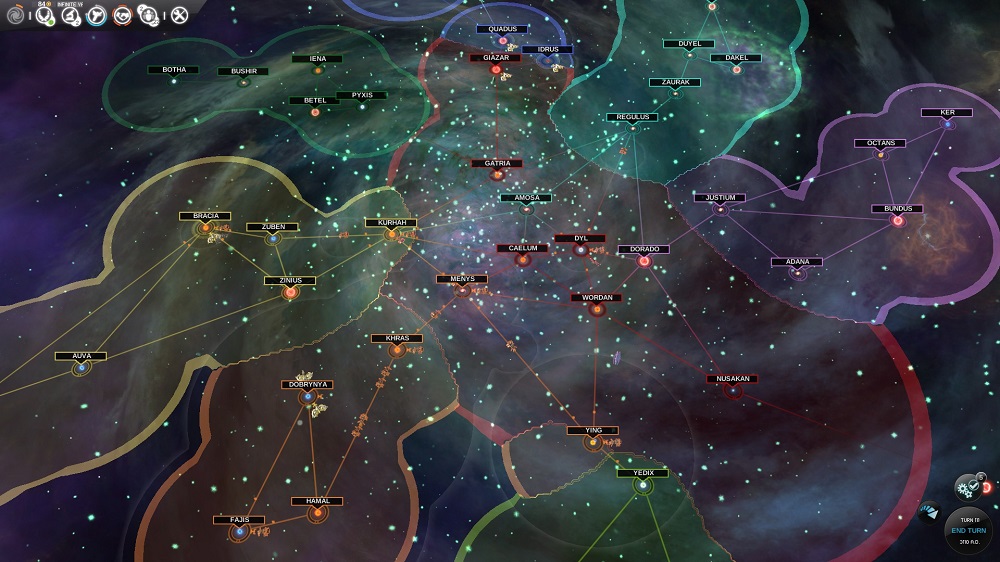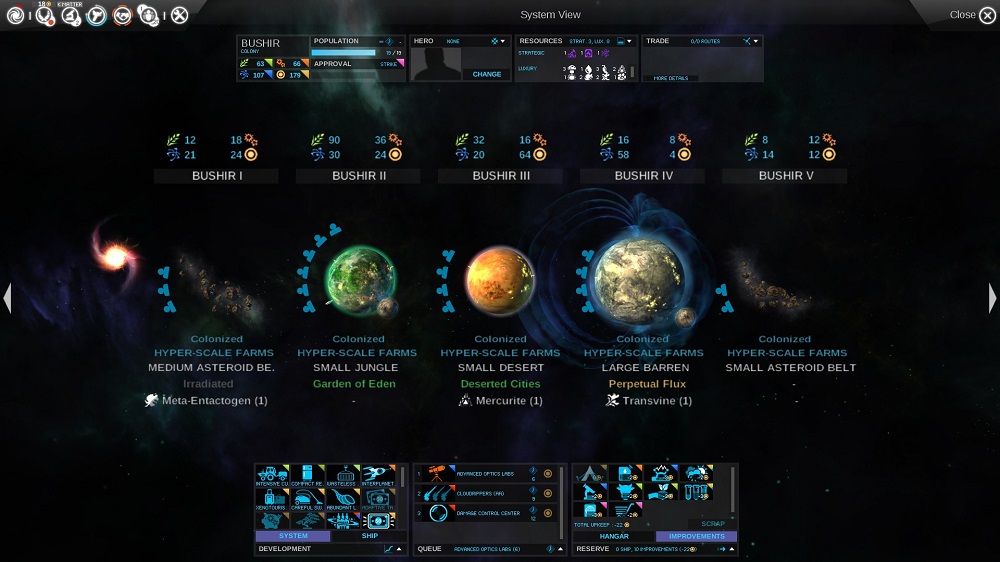De Waubert: We can have a lot of different votes. We can have votes on priorities. On our level, Mathieu and I, we have a certain amount of things we want to work on. They all come to us. We ask them which one they want to see in the game first. Then the community decides on that priority. Sometimes it’s like what you’re talking about. We could create this hero or that hero. We write all that up and they decide. Sometimes, like with the Cultists, we tell them, you know what, guys? We saved a faction for you and we want you to be able to create it. Then they go in the forums and discuss that. They vote among themselves. Then we take the best ideas they come up with in the forums and we put them up to a vote and ask the community.
Girard: Sometimes this can all be pretty scary. We have personal tastes as well. When you see, say, the three factions picked, you have to commit to what the community’s decided. Sometimes that can be scary. When the game is nearing release, we’re asking our VIPs – the core of the community – things like, we want to release on this date and we want to fix this and this and that. Do you think it’s okay to release? They take a vote and it has to be a majority of those VIPs saying we can release. We did that for Endless Space, Endless Legend, and Dungeon of the Endless. It’s scary, but you know that the community is going to support you in the decisions you make.
De Waubert: It’s very interesting to learn to let go in that situation.
GB: Becoming a strategy game studio as you have, what’s the biggest lesson you’ve learned about making a strategy game?
Girard: When it comes to development, A.I. is very complex. In 4X games it’s not just a few game systems you have to make work. It’s 10 or 15 game systems, and each of them has a different web in place. You must make the AI very specific, so you need different AI systems that work in cooperation. Also, when you develop a game that takes 300 turns to finish, it’s hard to quickly get to an endgame situation in any other way than just simulating what goes on. It can be time-consuming to tune a strategy game because of the sheer size of the content. Also, as opposed to other games–In an action game, a platformer, you can easily build a vertical slice of the game. It’s possible to build a prototype very early on that shows pretty clearly what the game will be. But with 4X, you must have almost all of the systems working. Your prototype is practically the alpha version of the game. Sometimes you have to wait a long time to be reassured that the choices you made are the right ones.
De Waubert: Going back to the size of the game, making such huge games—It’s difficult to have the same level of quality all along, because of the time required. Sometimes you want to show off every single game feature in the first few hours of the game, so you don’t leave enough new stuff to discover toward the end. You have to learn to keep stuff for later. That’s something we learned on Endless Legend, where we had a lot of cool stuff going on at the beginning. People were overwhelmed by all this new stuff. But then it’s the same stuff until the end of the game. We’re improving on that now with expansion packs, so we can add more stuff to the later game.
Girard: Another aspect is that strategy games are usually very systemic in terms of features. We want to also have a strong narrative component to the game. We have a great universe and we want to inject it into different parts of the game – not only the names of buildings or units, but also things like quests, events, narrative arcs, stuff like that. It’s a big challenge, because you can’t have a fixed storyline in a strategy game. We’re working on finding new ways to inject story elements into the game.
De Waubert: For me it’s not exactly the same thing. It’s just that when we started working on the game, me and Mathieu, the first thing we knew we wanted to do was to — we were looking at 4X games out there, strategy games out there, and for many of them — not all of them, but most of them – they were extremely hardcore, not very visually appealing. The universe wasn’t very deep. Most of the time they were games for programmers, people who loved Excel spreadsheets. That’s what we wanted to work on. Let’s imagine that the people who love these games aren’t just programmers or accountants. They could be all kinds of people. They’re interested in more than just numbers. That’s something we learned and proved with Legend. People are very interested in things like great music, great stories, great visuals, great characters. It’s not just about numbers. Of course, strategy is at the core of the game, and that’s where you need a community to make sure that aspect is solid and deep. But you can have more than that. If you look at the time we spent on the interface, making the game more accessible, more agreeable to control and understand — again, that’s because we wanted to make sure it wasn’t just a programmer’s game.
GB: Are you going to make an RPG now that you’ve made a roguelike?
De Waubert: We’ve gotten that question quite a few times lately. But no. We don’t have any plans for an RPG. To make a good RPG–We saw a very good one come out a few weeks ago in Pillars of Eternity. Everyone’s been playing it around the office. It can make you want to make one, but at the same time you realize how huge these games are. I’m very respectful of what they achieved there. I don’t think I’m ready to attack that kind of challenge yet. It’s very humbling.
VentureBeat's mission is to be a digital town square for technical decision-makers to gain knowledge about transformative enterprise technology and transact. Learn More



